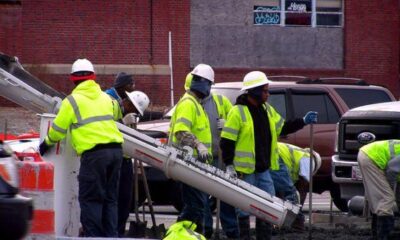

Economy
Pakistani women paid $100 a month to make ‘Brazuca’ Adidas World Cup footballs
As the World Cup comes to a climactic end, Germany’s victory has been undermined by questions regarding Fifa’s choice to source its products from one of the cheapest labour markets in the world.
Figures have shown that Pakistani workers, primarily women, who were contracted to make the ‘Brazuca’ (Brazil) Adidas World Cup footballs were only paid 10,000 Pakistani rupees (£59.35) a month.
This is significantly less than the cost of a single football. The cost to buy one of these footballs from Adidas is $159.99 (£93.35), while a replica will cost $39.99 (£23.33).
Ten thousand rupees is currently the minimum wage in Pakistan, which is one of the lowest in the world. The minimum wage compares to $325 (£189.63) per month in Brazil and $1,160 (£676.82) per month in the US.
The World Cup footballs were produced in the Forward Sports factory in the town of Sialkot, eastern Pakistan. The factory was chosen as Chinese partners could not maintain growth on demand for the Fifa approved footballs.
Sialkot has a relatively long history of producing footballs, with 30 million footballs exported last year, accounting for 40% of the global industry.
Brazilian ambassador Alfredo Leoni said, “It was a matter of great pride that the World Cup [footballs] were provided by a Pakistani company, giving Pakistan a connection with the global contest.”
However, the Latin Post did report that the women at the factory are treated rather well – and also act as an ‘empowering’ motion for women workers, who are primarily expected to maintain domestic roles at home.
According to the Dhaka Tribune, the women workers also receive life insurance and transportation.
The factory’s owner, Khawaja Akhtar, said, “We take unskilled workers and train them. This is a job that is not available anywhere else. You have to get someone with [a] good attitude and train them.”
Photo source: Choo Yut Shing via Flickr
Further reading:
We are a long way from achieving stability in supply chains
UK retail chains must lift sweatshop workers out of poverty, says union leader
UK’s modern slavery bill gets its second reading
Primark investigating ‘SOS’ note from Chinese prison worker found in trousers































